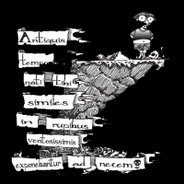The Deconstructionist: Officestar Galactica
 This week I’m going to talk about two successful television shows- both remakes- and what their success means for the state of television as well as our culture in general. Now, I’m catching up on these shows via the magic of DVD, so I’m only on the second season of each. This greatly decreases my ability to deliver spoilers, and I’m going to do my best to avoid specifics when I can, so even if you’re only considering watching these programs, you should be safe.
This week I’m going to talk about two successful television shows- both remakes- and what their success means for the state of television as well as our culture in general. Now, I’m catching up on these shows via the magic of DVD, so I’m only on the second season of each. This greatly decreases my ability to deliver spoilers, and I’m going to do my best to avoid specifics when I can, so even if you’re only considering watching these programs, you should be safe.
To bring everyone up to speed, ‘Battlestar Galactica’ is the sci-fi channel remake of the old Glen A. Larson (in the words of Stephen King) ‘space turkey’ made brutally adult. ‘The Office’ is a remake of a British sitcom set in a small office where an (seemingly) endless documentary is being shot. So on ‘The Office’ the characters relate to a handheld camera, and all the scenes are presented as if captured by a documentary crew.
The thing that these shows have in common is that they are successful tragedies, and that speaks volumes for the condition of the American television viewer today. Galactica begins, as the original series did, with the near-complete eradication by the cylons of 12 earth-sized planets, each filled with humans. Something less than 100,000 humans escape to flee across the universe in one aging Battlestar, searching for Earth. 

The thing to notice here is that both the 1978 series and the new series began exactly the same way, but in 78’, the cylon surprise attack was brutal but the resonance of the near-genocide was short-lived. The entire series may have been a race against death, a search for survival, but it was nevertheless told in gentle, prime-time manner. While the original Galactica was never Happy Days, the crew suffered little more agitation or angst about their predicament than say, the ‘A-Team’ did about the horrors of Vietnam or their wrongful persecution.
Not so the current Galactica. Each episode opens with a survivor count- a fluxtuating number that represents the total number of humans left alive. There’s no forgetting it- the cylons are dedicated to the extinction of the human race to the last child.
Why the difference? The writers of the 70’s show certainly could have been as grim, but I guess they didn’t see the need to be. This wasn’t high drama; it was a way to fill an hour on Wednesday nights while latching on to the Star Wars craze. True, that for a television show, Galactica was the very definition of high concept- it challenged evolution and creationism as a sub-plot- but they didn’t address the issue any more than Knight Rider did the concept of vigilantism. Anyone else remember the episode in the original series when the Galactica captured Baltar and he worked out some kind of trade and demanded his ship and centurions back, and Starbuck and Apollo programmed the centurions to punch the controls of the ship, stranding Baltar on the Galactica’s hangar deck? Good times.
There are absolutely no good times in the new Galactica. This show means something, is about something. In a way, Galactica is just as much a remake of the original Star Trek, as it is the old series, because the show isn’t about some other society and their issues, it’s about us.
The writers of the new series pump up the content by incorporating elements of our current political and social circumstances into the storylines. The cylons want to wipe humans out because they consider human society decedent. There are also serious religious differences. And since the cylons can now experience emotion, every death and atrocity on either side only reinforces the idea that The Universe Isn’t Big Enough For The Two Of Us.
Yet with all that the crew of the Galactica and her rag-tag fleet has gone through, they have a much better chance for happiness and fulfillment than the characters of the Office.
The Office is even more tragic than Galactica for a few reasons. The first is it follows the rules of a tragedy more closely- no hope goes uncrushed. The message of the Office is that the idiots are in charge and they don’t even care enough about you to hate you. I actually cringe whenever any character experiences the slightest bit of joy, because I know that they are being set up for some horrible occurrence. Thematically, it’s the logical progression from Sienfeld, where the central characters suffered endlessly but at least they were all jerks. There are several kind, generous, enviable people in The Office, but because they lack the will to Get Out, they are doomed. Seriously, this show plays like Dante’s Inferno, and the wonder of it is that so much tragedy exists in such unremarkable circumstances.
The Office’s use of a documentary-style format puts me in mind of some MASH episodes that used a similar trick. For these very special episodes, MASH put aside the hilarity while Hawkeye and his mates speak candidly into a camera about how they miss their families and the endless horror of patching up young kids to send them back into the meat grinder.
However, the characters The Office aren’t in a war. They aren’t being pursued through space by murderous toasters. They are living our very lives. Unlike Galactica, there is no mention of any larger world—there is no Iraq War, in the Office. There is only work, and occasionally some small measure of personal life, but only where it touches upon work. Romances are all office romances. If a character experiences a real-life tragedy, it is measured in how it affects their working relationships.
Both of these shows are exceptionally well made, well written, and well acted. Neither has an exit. The characters from Lost will be at home drinking tea and reminiscing about their strange adventures around the hatch long before anyone in Galactica lives a of cylon-free life or anyone in The Office experiences a lasting joy.
The terrible thing, the truly ominous message of these shows, is that they are rooted deeply on our own world, our own lives. They aren’t an escape, like most television is. They are a portrayal of our worst fears made worse still, and worse still, they are closed loops – their formulas preclude a happy ending, or any ending at all. They are perfect pills of misery, and they are our entertainment.
--G




2 comments:
Well, if you need me, I'll just be over here, throwing myself off a bridge...
You know, someone asked me recently why I don't watch Battlestar if I'm a sci-fi fan, and I realized that I don't put Battlestar in a category as a sci-fi show. I just don't. It's about as sci-fi to me as FX's "The Shield."
But that's just me.
Well, As you progress through BG's seasons you will find that it is a very linear plot line, and there is indeed an end in sight.
I will agree it's dark, but it's still the best written show grace television in years.
Pete, I suggest you watch it because it is absolutely sci-fi, but like Star Trek, what makes it great isn't aliens dressed in sliver lame' or space battles but people. Characters that stick with you long after the tube has cooled.
I wouldn't write it off just because it ranges in territory that makes us uncomfortable.
Maybe the opening just has the wrong soundtrack:
http://www.youtube.com/watch?v=VXTGd1Sab-w
Or vice-versa:
http://www.youtube.com/watch?v=NGyziabBogk
Post a Comment